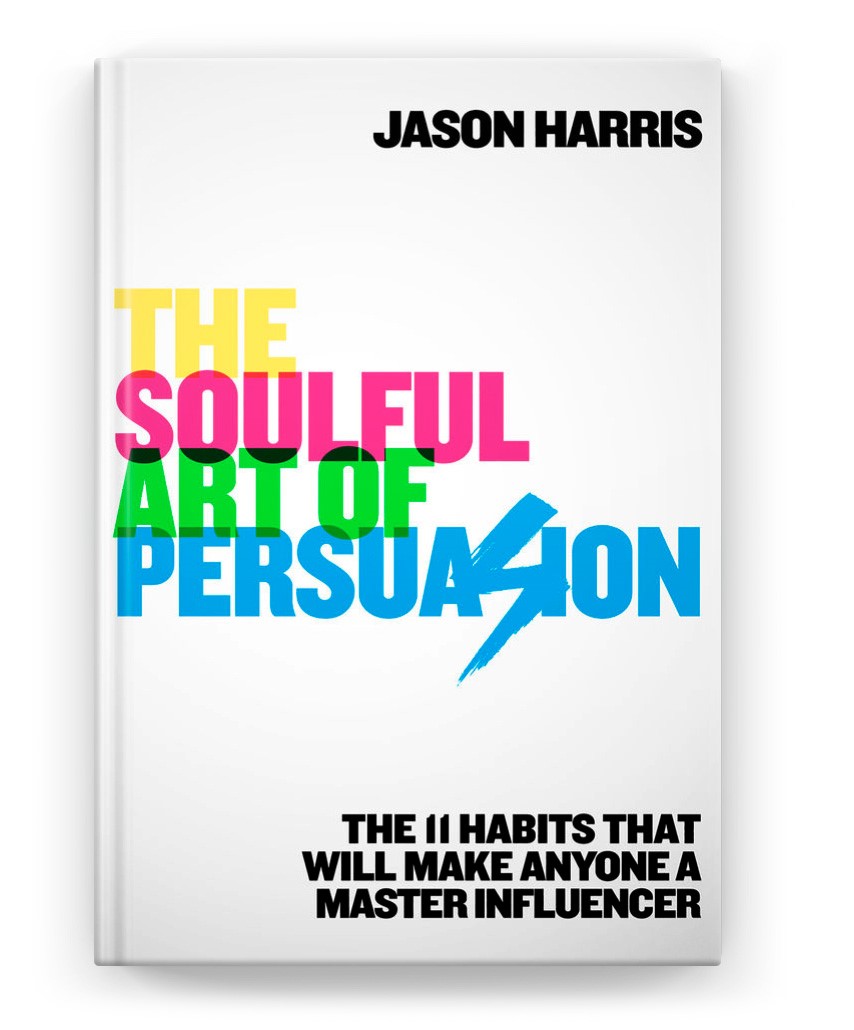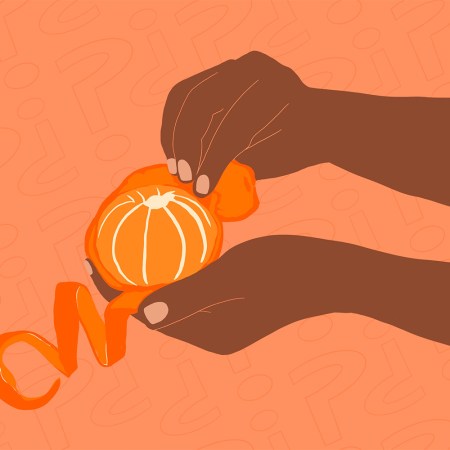Even if you’ve never so much as a double-tapped an Instagram post, the word “influencer” probably brings to mind a certain image of a polished, posed and filtered social media star with a high follower count and a coveted blue checkmark.
With The Cut’s recent exposé revealing the dubious origins behind influencer and alleged scammer Caroline Calloway’s fame, modern influencer culture is finding itself cast in an increasingly negative light. There was a time in a distant pre-Instagram world, however, when being an influencer wasn’t defined by likes, hashtags, verifications or sponcon. Back in the day, “influencer” was merely a somewhat awkward verbal noun that referred more or less vaguely to “one who exerts influence,” as Merriam-Webster defines it.
It’s this more traditional meaning that Mekanism CEO Jason Harris hopes to invoke and redefine when, in the subtitle of his new book, The Soulful Art of Persuasion, he alludes to “11 habits that will make anyone a master influencer.”
According to Harris, being an influencer in today’s world has nothing to do with social media starlets and brand endorsements. “What influencer means to me,” Harris tells InsideHook, “is somebody who has garnered trust and reliability that people listen to and respect.”
Trust and respect aren’t necessarily the first words that come to mind when we talk about influencer culture today, which — thanks to the editing, hidden hashtags, faux Coachella trips and carefully filtered guise of relatability influencers use to promote brands and sell products — has become an increasingly dubious world.
It’s exactly this kind of skepticism, a hallmark of what Harris calls “the age of distrust,” that The Soulful Art of Persuasion, out this week, hopes to cut through.
“People’s bullshit detectors are so much higher now,” says Harris, whose point is well taken. Just look at the wild skepticism that erupted last month among followers who accused a Nashville-based influencer of staging the motorcycle accident she shared on Instagram. In a world where, as Harris asserts in the opening line of his book, “it’s hard to know who to trust anymore,” we need to rethink what it means to be persuasive.
Even before the skeptical days of the Instagram influencer, persuasion was always, as Harris says, “a very loaded word.” Jane Austen wrote a whole book about its potential for destruction, and even today we maintain a certain, perhaps justified, wariness of those skilled in, say, “the art of the deal.”
According to Harris, however, persuasion doesn’t have to be the shady, ruthless endeavor it’s often made out to be. “Persuasion is really about character and substance,” he tells InsideHook, “not about trying to get one over on someone.”
Contrary to popular belief, there’s no dark art to being an influencer. “It’s really completely the opposite,” says Harris, whose vision of successful persuasion in today’s world rests on the perhaps surprisingly benevolent principles of being original, generous, empathetic, and soulful. We turned to Harris for advice on how to master these principles in order to become a real modern influencer — no photoshop or brand endorsements necessary.
Original
While Harris maintains that his book isn’t looking to turn anyone into a YouTube star, he does note that some of today’s most successful social media influencers got where they are thanks to some of the same principles he highlights, especially originality.
“A lot of them started in their living room talking to nobody before they had fans, but they were revealing their true selves. They were being vulnerable and they were putting themselves out there,” says Harris. “Over time, their audience grew because they were revealing something about themselves in a public way and they were being authentically and uninhibitedly themselves.” This kind of authenticity, says Harris, is the key to standing out and gaining trust among a generation of people who are no longer sold on an old-school “this is what’s in it for you” model of transactional persuasion.
Harris positions his model of authenticity and vulnerability in contrast to the Dale Carnegie school of How to Win Friends and Influence People, which, as Harris explains, is based on the pretense of mimicking shared interests with whoever you hope to win over.
“Today, the way you open people up is by sharing part of yourself,” says Harris. That means leaning into your quirks, interests, and even trials and failures. “By being open and vulnerable, it allows the other person to feel comfortable sharing part of themselves, and that’s how a connection is made.”
Contrary to the picture-perfect posts that have become synonymous with influencers of the social media era, real influence isn’t about crafting the perfect image to appeal to an audience. “It’s not closing yourself off or parroting the other person. It’s the opposite,” says Harris. “It’s being your original self to allow the other person to also feel comfortable being themselves.”

Generous
We tend to think of persuasion as a means of getting something, but Harris emphasizes that giving something is just as important. The best thing you can give someone you’re hoping to persuade? Respect.
“Respect is really what drives people,” says Harris, citing a 2014 Harvard Business Review survey of over 20,000 employees that found respect is the biggest thing people seek from their superiors in the workplace.
“Part of that respect is trying to look at everyone as equals and on the same level, even though their job titles might be different,” says Harris. Turns out, that Golden Rule you’ve been hearing about since kindergarten really does still carry weight. According to Harris, respect is as simple as being reliable, being present and treating others the way you want to be treated.
Of course, that’s always been easier said than done, and in the digital age, it may be even more difficult than ever. In a world where our attention is constantly being pulled in various directions, paying the respect owed to the many people that cross one’s path on a daily basis requires a bit of foresight, which is why Harris recommends looking out for opportunities to take preventative action.
Know you’re going to be unavailable for a period of time when a colleague might need you? Announce it beforehand with a quick email, Harris suggests. Is there a chance you may have to cut a conversation short in order to answer an urgent call from home? Be upfront with the person whose time may get cut short. Like being original, respect really just comes down to honesty.
Empathetic
“Persuasion isn’t facts and arguments,” says Harris. “It’s having empathy. It’s connecting with people that might not share the same views as you.”
Empathy levels today may have reached an all time low. It goes without saying that you can look to the current political climate for what is perhaps the biggest example. Harris points to the major discrepancy between the results of two studies, one done in the 1960s and one done in 2016, asking Americans how they would feel if their child married someone of the opposite political party. In the initial survey, only 6 percent of Americans said they would have a problem with it. Flash forward to 2016, and that number had skyrocketed to 64 percent.
“The world is a lot less trusting and a lot less connected, and we’re not seeing the human commonalities that I think we had in the recent past,” says Harris.
Fortunately, according to Harris, empathy can be cultivated. “If you’re not naturally empathetic, you can develop that skill,” he says, and it all starts by seeking out commonalities rather than differences. “When you meet someone, try to find the connection point between you,” he advises, rather than focusing on differences. Over time, these mental practices can lead to what Harris calls “a natural curiosity” about others.
Soulful
Soul is the final principle that separates Harris’s model of persuasion from the often negative connotations it typically carries, but he’s not just talking spiritual fluff.
For Harris, soulfulness is intimately tied to purpose. “Part of being soulful is marrying your skill with purpose,” says Harris, who encourages aspiring influencers to look for opportunities to use that conflation of skill and purpose to give back, thus inspiring and influencing others to do the same.
Soulfulness, as Harris defines it, “will make you persuasive and an influencer because you’re doing something positive for the world that people will admire, and it will inspire other people to do other positive things.”
For Harris, persuasion isn’t about bending others to your will, and being an influencer has nothing to do with racking up likes on Instagram.
“There are certainly people out there that are successful by pulling fast ones, being transactional in their thinking, trying to always close deals,” Harris admits. “But in the long run, that will burn out, and business and life is a marathon.” By practicing an other-directed model of persuasion, says Harris, “you will become influential over the long haul because of the way you treat people and your values. You’ll be ultimately an incredibly persuasive person because you’ve built trust and sincerity and reliability and respect.”
This article was featured in the InsideHook newsletter. Sign up now.
























